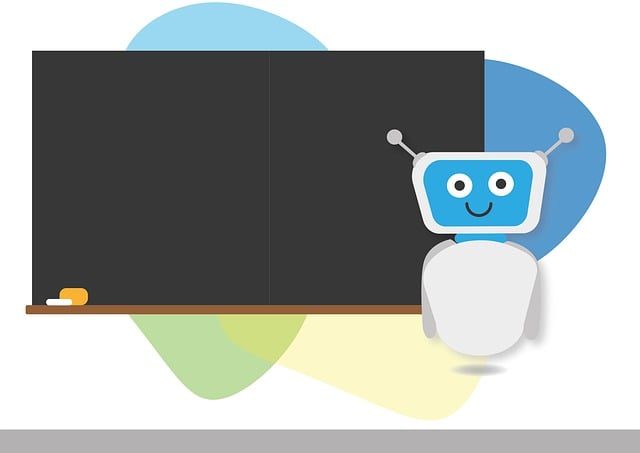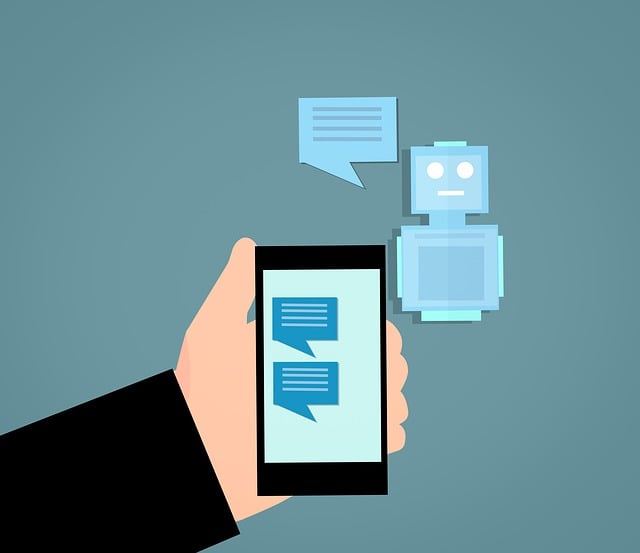AI chatbots and assistants have evolved dramatically, leveraging NLP and ML technologies to offer dynamic, personalized interactions. Unlike rule-based systems, these advanced tools learn from data, understand context, and adapt responses based on user feedback. Integrated into platforms like messaging apps and smart speakers, they provide 24/7 AI customer service, enhancing efficiency and satisfaction. However, the rapid progress presents ethical challenges like data privacy, security, bias mitigation, and employment impacts, necessitating responsible innovation to balance AI's transformative potential with ethical considerations.
In the rapidly evolving landscape of artificial intelligence (AI), chatbots have transcended their static origins to become dynamic AI assistants, revolutionizing customer service. This article explores the current state of AI chatbots, delving into their evolution from rule-based systems to machine learning-driven models. We examine how these advancements enhance interactions with customers, discuss ethical considerations in development, and forecast the future of AI assistants—a personalized, intelligent, and seamless support system tailored to individual needs.
- Understanding AI Chatbots: The Current State of the Art
- Evolution of AI Assistants: From Rules to Machine Learning
- Enhancing Customer Service with Dynamic AI Interactions
- Challenges and Ethical Considerations in AI Assistant Development
- The Future of AI Assistants: Personalized, Intelligent, and Seamless Support
Understanding AI Chatbots: The Current State of the Art

AI chatbots have evolved significantly over the years, transforming from basic rule-based systems to sophisticated AI assistants capable of understanding and generating human-like responses. Today, these chatbots power a wide range of applications, from customer service interactions to content creation and personal assistants. At their core, AI chatbots leverage natural language processing (NLP) and machine learning algorithms to interpret user inputs, retrieve relevant information, and provide contextually appropriate outputs.
The current state of the art in AI chatbots is marked by advancements in deep learning models, such as transformer architectures, which enable them to grasp nuanced language structures and maintain coherent conversations. They can now engage in multi-turn dialogues, remember contextual details, and adapt their responses based on user feedback. Moreover, AI assistants are increasingly being integrated into various platforms, from messaging apps to smart speakers, making interactive and personalized AI customer service more accessible than ever before.
Evolution of AI Assistants: From Rules to Machine Learning

The evolution of AI assistants is a journey from rigid, rule-based systems to dynamic, learning entities. Early AI chatbots were designed with pre-set rules and scripts, limiting their ability to adapt to diverse user queries. These bots often struggled with context understanding and required users to adhere to specific prompts. However, the advent of machine learning (ML) technologies has transformed the landscape of AI customer service.
ML algorithms empower AI assistants to learn from vast datasets, enabling them to understand natural language nuances and generate more human-like responses. This shift allows for more fluid interactions, where the AI assistant can adapt its approach based on user behavior and feedback. As a result, modern AI assistants provide more personalized and contextually relevant support, revolutionizing customer service across various industries.
Enhancing Customer Service with Dynamic AI Interactions

In the realm of customer service, Artificial Intelligence (AI) chatbots and assistants are no longer static tools but dynamic entities that revolutionize interactions. Traditional methods often rely on pre-programmed responses, limiting the depth and personalization of support. Dynamic AI assistants, however, leverage advanced algorithms to understand and adapt to individual customer needs. By analyzing past interactions and utilizing natural language processing, these assistants can provide tailored solutions, creating a more engaging and efficient experience.
This evolution allows for 24/7 availability, immediate response times, and consistent quality of service. Customers benefit from faster problem-solving, reduced wait times, and customized guidance. Moreover, dynamic AI assistants learn from every interaction, continually improving their performance and expanding their knowledge base, ensuring that customer service reaches new heights of effectiveness and satisfaction.
Challenges and Ethical Considerations in AI Assistant Development

The development of AI chatbots and assistants has revolutionized customer service, offering round-the-clock support and personalized interactions. However, this evolution also brings a unique set of challenges. One significant concern is ensuring ethical AI practices, especially regarding data privacy and security. As these AI systems learn from vast datasets, protecting user information becomes critical. Developers must implement robust measures to safeguard sensitive data, maintain transparency in data collection, and provide users with control over their information.
Furthermore, the potential for bias in AI assistants is an ongoing issue. Training data can inadvertently introduce stereotypes or inaccuracies, leading to unfair outcomes. Addressing this requires diverse and inclusive datasets and continuous monitoring to identify and rectify biases. Developers must also consider the impact of these technologies on employment, ensuring that AI assistants enhance human capabilities rather than replacing them entirely. Balancing innovation with ethical considerations is vital to shaping a responsible future for AI customer service.
The Future of AI Assistants: Personalized, Intelligent, and Seamless Support

The future of AI assistants is poised to transform how we interact with technology, moving away from static bot interactions towards dynamic and personalized support. Advanced AI chatbots are evolving to become sophisticated companions that understand and anticipate our needs. With natural language processing improvements, these assistants can handle complex queries and engage in meaningful conversations. This evolution promises a seamless user experience, where customers receive tailored assistance across various touchpoints.
Imagine an AI customer service representative that learns your preferences, remembers your past interactions, and provides contextually relevant solutions. Such intelligent assistants could revolutionize support by offering efficient, consistent, and highly customized care. By leveraging machine learning, these systems adapt to individual users, ensuring a future where human-AI collaboration enhances productivity and satisfaction in countless industries.
